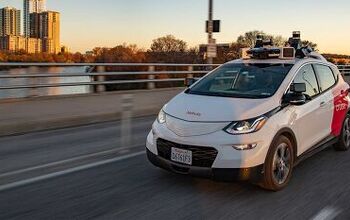Denmark EV Incentive: $40k and a Parking Spot
Along with Israel, Denmark is one of the first countries to sign on to Project Better Place’s attempt to establish a viable electric car infrastructure. And as with all early adopters, Denmark is paying a pretty price for the experiment. The country is spending $100m on infrastructure, including charging points and battery-swap stations. Moreover, Better Place’s partner, public utility Dong Energy, is trying to run the new EV infrastructure entirely on wind power, which is already the source of 20 percent of Denmark’s energy. “We’re the perfect match for a windmill-based utility,” Better Place founder and CEO Shai Agassi tells the NY Times. “If you have a bunch of batteries waiting to be charged, it’s like having a lot of buckets waiting for rain.” Despite the close government involvement in the project, Danes are still wary of making a wholesale switch to EVs, prompting the government to offer $40,000 in consumer incentives for electric vehicles, as well as free parking in downtown Copenhagen. Though there’s plenty of skepticism in Denmark about the plan, that incentive is expected to make a huge difference.
After all, buying a car in Denmark isn’t the same as buying a car in the US. The NYT explains:
The country imposes a punitive tax of about 200 percent on new cars, so a vehicle that would cost $20,000 in the United States costs $60,000 here. For a quarter-century, electric cars have been exempt from that tax. But the models on the market were so limited in their capabilities that only 497 of them are registered in the entire country.
And though the incentive combined with Better Place’s Renault/Nissan EVs might make a difference, Danes are still worried about betting the farm on a single vehicle supplier. With millions set to be spent on Better Place’s battery swap stations (under BP’s scheme, you buy a car but lease a battery, a system based on the cell phone contract model), many worry that the stations won’t be able to supply batteries to competitor EVs. “I’m skeptical about the infrastructure,” says Klaus Bondam, Copenhagen’s mayor for technical and environmental administration. “It won’t work unless it’s standard on every electric vehicle produced.”
The questions point to an underlying problem with Better Place’s strategy. Though battery leasing and swap stations theoretically eliminate range anxiety (since batteries could be swapped in less time than it takes to fill a tank with gas), the BP-specific infrastructure forces competitors wanting access to the Israeli and Danish EV markets to standardize to BP’s specifications. Though standardization of a plug-in infrastructure is clearly a major goal for all EV supporters, the terms of that standardization should not be set by a for-profit, public-private enterprise. The Society for Automotive Engineers or some other cross-industry organization should take the lead in establishing international EV standards, and should do so in such a way that doesn’t favor any one manufacturer. Otherwise, Better Place’s attempt to leap ahead in establishing its own infrastructure will end up dictating the terms of engagement for everyone else. Especially when it has such generous governmental support.
More by Edward Niedermeyer
Latest Car Reviews
Read moreLatest Product Reviews
Read moreRecent Comments
- Jeff Self driving cars are not ready for prime time.
- Lichtronamo Watch as the non-us based automakers shift more production to Mexico in the future.
- 28-Cars-Later " Electrek recently dug around in Tesla’s online parts catalog and found that the windshield costs a whopping $1,900 to replace.To be fair, that’s around what a Mercedes S-Class or Rivian windshield costs, but the Tesla’s glass is unique because of its shape. It’s also worth noting that most insurance plans have glass replacement options that can make the repair a low- or zero-cost issue. "Now I understand why my insurance is so high despite no claims for years and about 7,500 annual miles between three cars.
- AMcA My theory is that that when the Big 3 gave away the store to the UAW in the last contract, there was a side deal in which the UAW promised to go after the non-organized transplant plants. Even the UAW understands that if the wage differential gets too high it's gonna kill the golden goose.
- MKizzy Why else does range matter? Because in the EV advocate's dream scenario of a post-ICE future, the average multi-car household will find itself with more EVs in their garages and driveways than places to plug them in or the capacity to charge then all at once without significant electrical upgrades. Unless each vehicle has enough range to allow for multiple days without plugging in, fighting over charging access in multi-EV households will be right up there with finances for causes of domestic strife.

































Comments
Join the conversation
Not unknown for one company to make a product that everybody had to follow to gain markets. IBM pc's and Microsoft spring to mind. One company making a specific type of product, be first in the market place and saturate, so that every other competitor/pruducer had to emulate, licence or plain copy to remain in the market, or, go down a different path and be forever stuck with a small slice or at best a niche following.
"Though standardization of a plug-in infrastructure is clearly a major goal for all EV supporters, the terms of that standardization should not be set by a for-profit, public-private enterprise." I don't see a problem there, so long as it is an open standard. While it would be nice to wait for a governement commitee to design an alternative, do you really think it'll be a whole lot better?